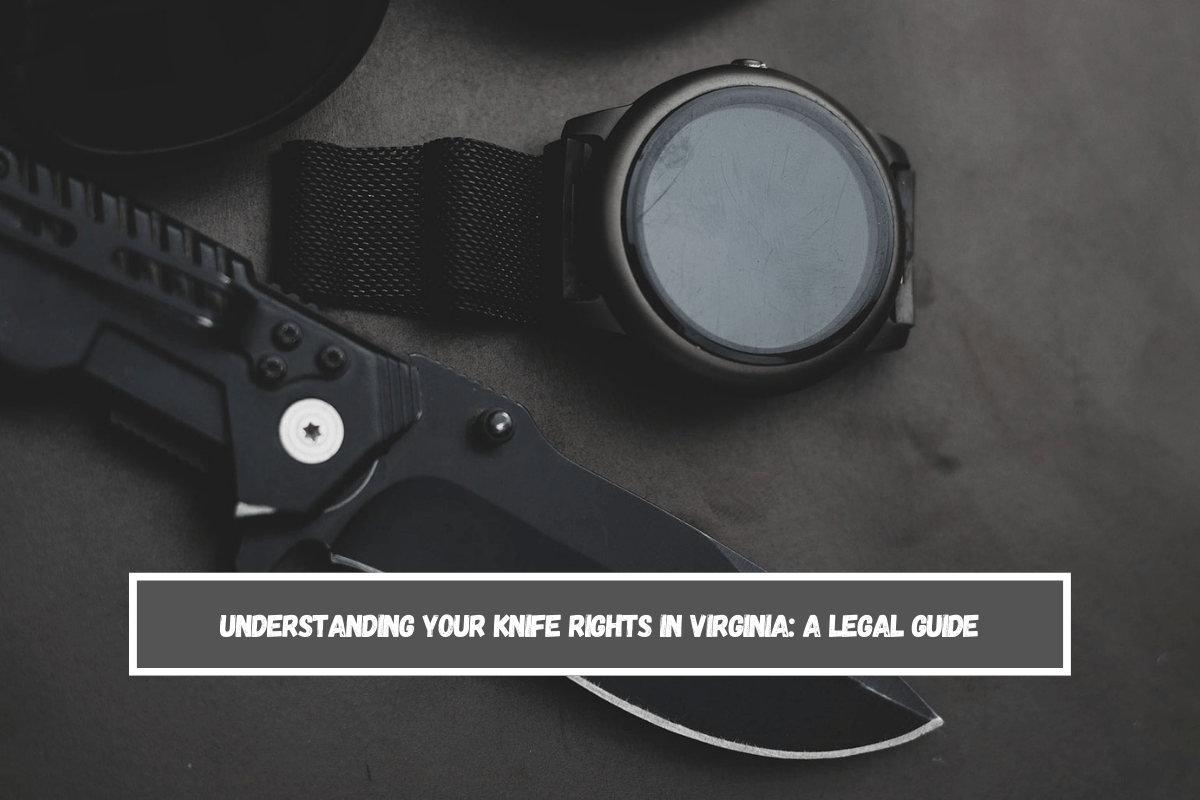Like many other states, Virginia has rules about who can own and use knives.
The knife laws in Virginia are not as strict as those in some other states, but it is still important to know the rules if you want to legally own a knife. Just a quick look at what you need to know about Virginia’s knife laws.
1. Types of Knives Permitted
Virginia law is pretty lax when it comes to owning a knife. Most knives, like folding knives, fixed blade knives, and even bigger knives like bowie knives, can be owned without any problems.
But some knives might be regulated more strictly in some places, like schools or government buildings. In Virginia, it is legal to own a switchblade, but there are some situations where you can not carry one, which we will talk about more below.
2. Legal Restrictions on Carrying Knives
Virginia law makes a difference between open carry and concealed carry when it comes to carrying knives:
Open Carry: This law in Virginia lets people carry most types of knives openly. You are likely within your rights as long as the knife can be seen. But it is best to check the local laws first, since some cities and towns may have more restrictions.
Covert Carry: The laws about covert carry are stricter. Virginia Code §18.2-308 lists weapons that can not be carried concealed, which includes some knives.
These include “dirks,” “switchblades,” and “bowie knives” that are carried out of sight. If you are not sure if it is legal to carry a knife that could be seen as a weapon without a concealed weapons permit, you should check with your local police.
3. Exceptions and Restricted Areas
There are places where carrying a knife is illegal, even if it is against the law in your state:
In Virginia, it is against the law to bring knives with blades longer than three inches onto school grounds. This includes K–12 schools and colleges.
This rule applies to both students and people who are just visiting. Also, many government buildings do not allow any weapons, even knives, so check the rules before you go in.
Public and Private Land: People who own businesses and private land can make their own rules about carrying knives. If a store or private property has a sign that says weapons are not allowed, you must follow it.
4. Legal Consequences of Violations
If you break Virginia’s knife laws, you could be charged with a crime, especially if you are carrying a type of knife that is not allowed or in a place where you are not supposed to be.
For different types of violations, charges can range from misdemeanors to felonies, especially if there are other factors like intent to harm.
Conclusion
In Virginia, knife rights are pretty broad, which means that most knives can be owned and carried openly.
But carrying certain knives concealed without a permit or in places like schools or government buildings where it is not allowed can get you in trouble with the law.
Always check your local laws again to make sure you are not breaking any rules, and stay informed to legally enjoy your knife rights.
Also see:-This Town Has Been Named The Poorest In New Jersey













Leave a Reply